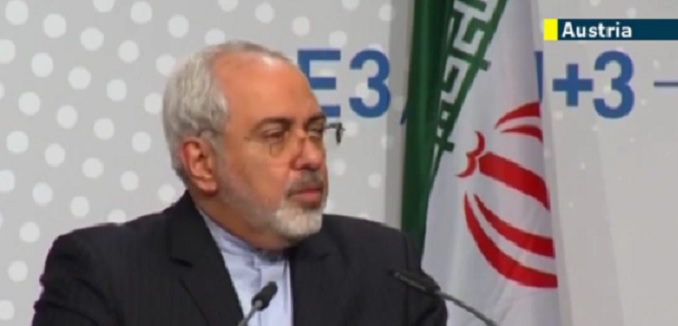The New York Times reported this week that Iran and the global P5+1 powers had concluded two days of talks but are still far from a final agreement:
The lead negotiators, the Iranian foreign minister, Mohammad Javad Zarif, and Catherine Ashton, the top foreign policy official of the European Union, made the assertion in a joint statement that said the next round of talks would be held May 13. The statement suggested that both sides were still struggling with extensive disagreements and described the further negotiations as an attempt to “bridge the gaps in all the key areas.”
Washington analysts were more blunt:
Envoys: Iran nuke talks need “intensive work” — diplo speak for, “The talks are going nowhere fast” | http://t.co/747Pg5Huf4
— Mike Doran (@Doranimated) April 10, 2014
The negotiations have wound down amid a statement from Iranian Supreme Leader Ayatollah Ali Khamenei – broadcast, for emphasis, across multiple digital platforms –forbidding Iranian negotiators from making concessions on any of Iran’s “nuclear achievements.” The stance echoed a red line against minimal uranium and plutonium concessions repeatedly underlined by top Iranian officials.
Meanwhile Iranian media conveyed statements from the country’s foreign minister, Mohammed Javad Zarif, also ruling out any concessions on Iran’s “defense program,” a euphemism used by Iranian diplomats to describe Tehran’s ballistic missile program:
“We emphasize that topics that have to do with Iran’s defense program have no place in these negotiations,” Zarif told Iranian reporters in Vienna on Wednesday, the Fars News Agency reported.
He said Iran will continue its civilian nuclear activity and nothing could be imposed on the Islamic Republic in this regard.
Iran is obligated by binding United Nations Security Council resolutions to roll back – and in the case of its atomic program, to dismantle – infrastructure across all of those programs. Continued Iranian intransigence is likely to fuel concerns that Western negotiators lack sufficient leverage to extract meaningful and robust concessions.
Mark Dubowitz and Rachel Ziemba – respectively the executive director of the Foundation for Defense of Democracies and the director of emerging markets at Roubini Global Economics – on Thursday published analysis concluding that “a variety of key macroeconomic indicators” all converged on the conclusion that Iran is experiencing an economic recovery, in part due to American and Iranian officials having undervalued the sanctions relief provided by the interim Joint Plan of Action (JPA). In light of the analysis, Dubowitz suggested that the White House should stop agreeing with Iran’s lowball estimations of the relief.
[Photo: JewishNewsOne / YouTube]




